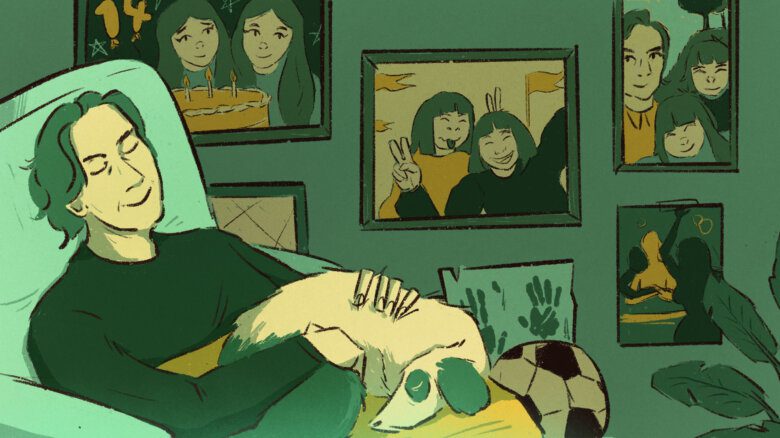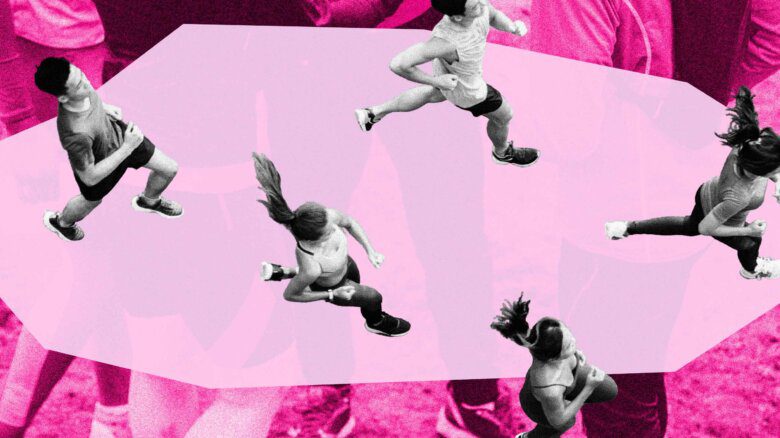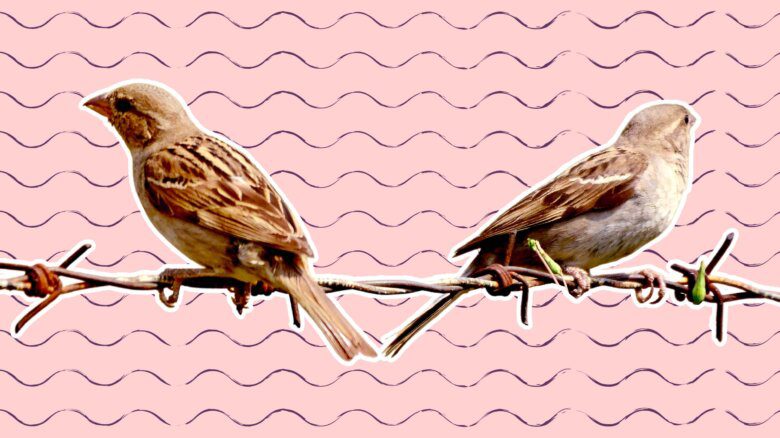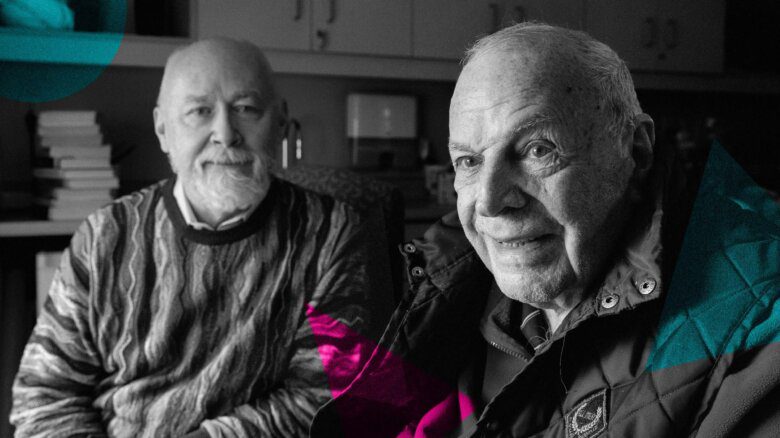“Ask Kai: Advice for the Apocalypse” is a column by Kai Cheng Thom to help you survive and thrive in a challenging world. Have a question? Email askkai@xtramagazine.com.
Dear Kai,
I’m a queer woman in a horrible COVID-19 dilemma. This past year, I started dating an awesome trans girl. It was a different moment in the pandemic from now, where I felt prepared to take some (calculated) risks in order to date and see people, and it seemed like most of the folks in my community were more or less on the same page. I really clicked with this girl and we started a relationship.
She always seemed a little bit more reckless when it came to COVID-19 than me, but the first vaccination campaign took off as we were getting serious and the infection numbers had dropped really low, so it didn’t seem to matter much. Even when Delta hit, the hospitalization rates seemed under control, and we were both vaccinated, as were pretty much all of our close friends and family. Then came Omicron, which is where the trouble began.
My new girlfriend doesn’t really seem to grasp (or want to grasp) how this situation is different, or why taking precautions is important. She had “flu symptoms” (read: potentially COVID-19!) over the holidays, but she refused to get tested or isolate at all. She even went to the movies! She keeps asking me to hang out and go out with her—to parties even—and I just don’t know what to say. I once confronted her about it, and she got really defensive. She said that my white privilege was showing (she’s not white), that she needs to see people and go out for her mental health and that “some people don’t have the privilege of isolating.” I know that’s true, but I’m not sure I think it’s true for her (she has an office job and works from home). Kai, I don’t know what to do! I really like this girl, but I’m not comfortable with her COVID-19 protocols (or lack thereof) and I wish this had come up before we started dating. Am I being racist? Help!
Horribly Anxious Lesbian Person
Dear HALP,
The situation you describe is troubling indeed. As we all struggle to adjust to the shifting sands of the pandemic, new conflicts, dilemmas and relationship challenges are bound to emerge. Two years of constantly changing demands, omnipresent dangers and contradictory health information campaigns have taken a serious toll on our collective patience and mental health. At the end of the day, all any of us want is to be safe, to be seen as good people and to be loved. Where problems arise is in how we interpret and pursue those goals.
Change is a stress test for any relationship. In previous columns, I’ve written about the notion of a “relationship contract,” which is essentially a series of agreements that we make, either explicitly or implicitly, when we enter into a relationship. For example, it’s understood in many romantic relationships that sex will be involved, that the people in the relationship will be reasonably nice to one another and that some form of monogamy or polyamory will be observed. The terms of a relationship contract are usually centred around ensuring that the people in the relationship have their needs met.
Most people never explicitly discuss the terms of their relationship contracts but nonetheless rely upon them for consistency and stability. When circumstances change, like, when a member of the relationship goes through a life transition or when there is a major global health crisis that threatens the stability of all human society, the relationship contract may need to be renegotiated. At this juncture, the relationship is tested: Is the connection and communication between partners strong enough to endure uncertainty and conflict? Are both people still in a place where they are physically and mentally capable (and willing) to meet one another’s needs?
This brings me to you and your new girlfriend, HALP. You built your relationship at a time when the global situation (and, likely, your respective personal situations) made intimacy with one another pleasurable and fulfilling.
We might think of COVID-19 (and its many variants) as an accelerator: it changes the terms of the world in which we live very quickly, and thus the terms of our relationships as well. The result is that we are forced to deal with big relationship questions and challenges sooner and more frequently than in “normal” times. Stress and change reveal fault lines in relationships, places where communications and expectations need to be clarified; they also reveal a person’s true values, priorities and state of mind.
All this to say, I invite you to offer both yourself and your partner some deep compassion: we are all flailing, doing our best with the information we have at any one moment in time. We are all messy, and we make mistakes. But we are still good, still worthy of safety and love.
This, I imagine, is something that is on your girlfriend’s mind as well, whether or not she admits it. The issue of COVID-19 safety protocols—restricting contact, self-isolating, getting tested and vaccinated and so on—brings up deep insecurities in all of us across the political and identity spectrums. Not only that, but as the Omicron and other variants continue to develop, the situation is changing so quickly that we are, more than ever, left on our own to parse conflicting health advice and scientific data.
We are forced to wonder: What would I give up for my physical safety? What would I give up for the safety of others? Are my tiniest behaviours, like stepping out for a walk, going to the grocery store or seeing a friend in a coffee shop, going to hurt me or somebody else? Are my needs for intimacy, closeness, touch, fun putting myself or others in danger?
Under the enormous weight of such questions, most humans will respond by tending toward some form of extreme—it’s hard not to. Whether we shut down and hide from the world completely or throw all caution to the wind, we are all just trying, with our limited and overstressed animal bodies and minds, to make sense of a seemingly impossible dilemma. We also tend to project our worries and insecurities onto others in the form of judgments. Depending on our particular orientation, we might dismiss people as “reckless” or “careless,” or derisively call someone “COVID-19 anxious” or “paranoid.”
“We can miss or forget to factor in the deliberate political mismanagement that has severely exacerbated the pandemic.”
In so doing, we miss the deeper motives, the universality in all our disparate strategies. We can also miss or forget to factor in the deliberate political mismanagement that has severely exacerbated the pandemic: bungled government responses and corporate cronyism that has, for example, resulted in millions of people worldwide not having access to vaccines. The burden of ending the pandemic should never have been placed on individual behaviours; and yet, here we are, in a place and time where our individual choices now carry too much weight.
It speaks to your integrity, HALP, that you’ve already tried to have this conversation with your girlfriend. I might suggest that you try it again, if you feel safe and open to doing so. Rather than using the framework of “confrontation,” you might instead think of it as an “exploration.”
Really get curious, if you can. What need is your girlfriend trying to meet by taking on a COVID-19 risk-heavy lifestyle? What does she consider so important that she is willing to risk infection for it? And—tread very delicately here—what is so important to her that she might put others at risk for it? She has already mentioned her mental health: Would she be willing to tell you more about that? What other supports could she put in place so that harm reduction might be possible?
Ideas of privilege and oppression are relevant here, for sure, but I’d also like to gently suggest that political arguments feel powerful, and a lot of us revert to the most powerful stance we can find when we feel judged or threatened. Yes, BIPOC individuals have been disproportionately affected by the pandemic, from infection and disease to economic impacts.
However, that doesn’t mean that BIPOC are totally free to disregard the potential consequences of our actions on others. Unfortunately, my racialized identity doesn’t mean that I can’t still potentially pass on COVID-19 and cause long-term disease, disability or death to a vulnerable person. While it may not be fair that I have to consider this, it remains a reality that my choices directly impact those around me. It’s not racist to acknowledge that.
So how can you hold this reality with your partner, HALP? Starting with compassion and curiosity are likely the key in this situation. The more your partner feels held and affirmed in her reality and her needs, the more likely she is to soften and show openness to other perspectives. Remember, though, that you are also allowed—encouraged, even—to have boundaries of your own. Showing understanding and curiosity about her needs while holding on to your own COVID-19 safety protocols is likely to be a delicate dance. The trick is to kindly and gently acknowledge the differences in your perspectives and then to ask some crucial questions in as nonjudgmental a way as possible.
How can you support your girlfriend in getting her mental health needs met while also staying within your own COVID-19 risk limits? Are your needs and beliefs still compatible, or is it time to consider taking some space from one another, at least until this COVID-19 wave subsides? And if you do need to take space, how can you do so as kindly and compassionately as possible? Just as importantly, is your partner capable of offering the same compassion and kindness that you are offering her? If so, that’s an excellent sign. If not, it may be a warning that similar conflicts could emerge in the future.
These are big and likely stressful questions, HALP, and there’s no need to answer them immediately. I recommend that you and your girlfriend take your time, remembering to acknowledge everything that’s good about your relationship and each other as you do. The solution to impossible conflicts often emerges when we treat them with time and kindness and are dedicated to keeping each others’ best self in sight.
Hang in there, HALP. Let curiosity be your map and compassion your guide. Hold on to your boundaries while staying open to your partner’s perspective. If you’re going to have more difficult, courageous conversations—and I hope you do—then take the time to make each word and question count. Remember that we all just want to be safe, to be good, to be loved. Never forget that you are all the above.
Kai Cheng Thom is no longer a registered or practicing mental health professional. The opinions expressed in this column are not intended or implied to be a substitute for professional medical advice, diagnosis or treatment. All content in this column, including, but not limited to, all text, graphics, videos and images, is for general information purposes only. This column, its author, Xtra (including its parent and affiliated companies, as well as their directors, officers, employees, successors and assigns) and any guest authors are not responsible for the accuracy of the information contained in this column or the outcome of following any information provided directly or indirectly from it.


 Why you can trust Xtra
Why you can trust Xtra


